Events
-
-
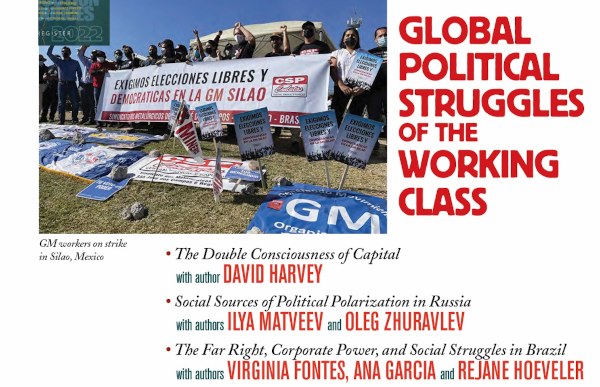
Global Political Struggles of the Working Class
David Harvey: The Double Consciousness of Capital Ilya Matveev, and Oleg Zhuravlev: Social Sources of Political Polariztion in Russia Virgina Fontes, Ana Garcia, and Rejane Hoeveler: The Far Right, Corporate Power, Social Struggle in Brazil DAVID HARVEY is Distinguished Professor of anthropology and geography at the City University of New York. ILYA MATVEEV teaches politics … Keep reading »
-
-

SR 2022: The Direction Forward
VISHWAS SATGUR: Epidemiological Neoliberalism in South Africa In this presentation, Vishwas Satgar sets out the Covid-19 pandemic in South Africa as an example of polarized access to medical services shamelessly piled on top of acute polarizations of income and employment and ecological vandalism. But the ANC government’s neoliberal pandemic response, “has also unleashed a cycle … Keep reading »
-
-
Rights, Regularization and Status for All!
Christie Pits Park 750 Bloor St W, Toronto, Ontario, CanadaOn September 18 – one day before Canadian Parliament returns – we will gather in the thousands to demand equal rights and permanent resident status for all undocumented people, migrant workers, students, families and refugees. A historic regularization program is on the horizon, but we need to take to the streets to ensure that no … Keep reading »
-
-
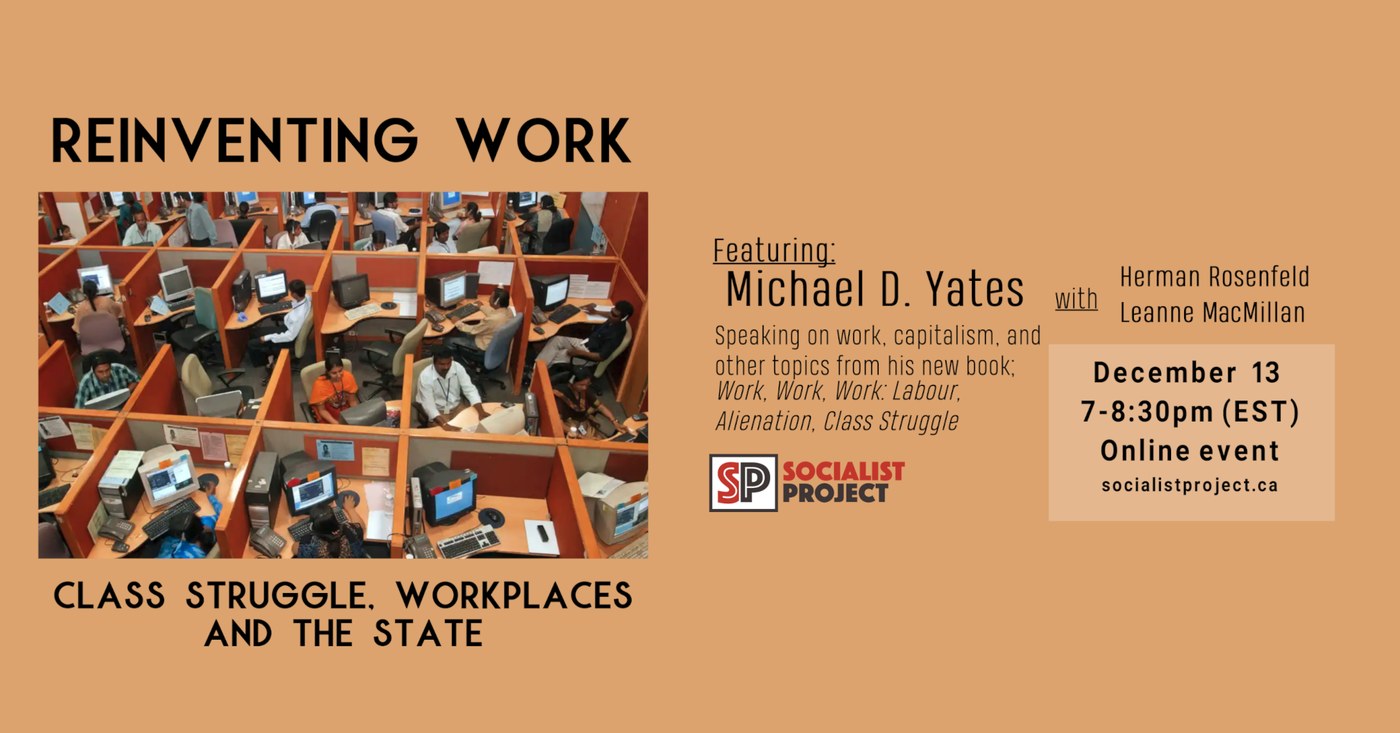
Reinventing Work with Mike Yates
The Socialist Project is proud to present Reinventing Work, a launch event for Work, Work, Work: Labor, Alienation, and Class Struggle, the insightful new book by Mike Yates. Please join us for this special online event, featuring a presentation from Mike on the book’s perspective and its relevance to today's moment, as well as opportunities … Keep reading »
-
-

Peace Initiatives
Demonstrations, conferences, grassroots activities and other organized by peace organizations in Europe to stop the war and build the peace. Across Europe, 24 - 26 February, 2023.
-
-
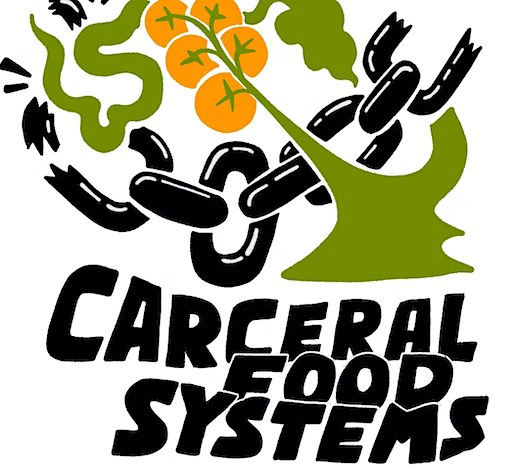
Carceral Food Systems Summit
Bridging Food Justice and Prisoner Justice A two-day gathering bringing people together to connect and learn the ways in which food and carceral systems interconnect. On March 31st and April 1st, Carceral Food Systems is hosting a gathering to bring together individuals and organizations working within food justice and prisoner justice contexts and spaces. We … Keep reading »
-
-
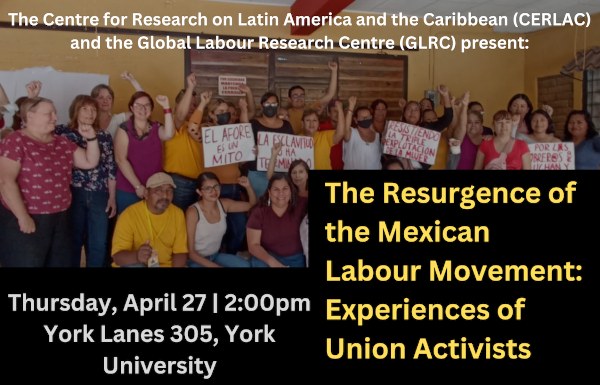
Resurgence of the Mexican Labour Movement
519 Kaneff Tower, York University Toronto, Ontario, CanadaOver the past year, thousands of workers in factories across Mexico producing goods for multinational corporations from GM to 3M, have joined or formed independent unions, displacing the old pro-employer “protection contract” unions. These struggles have emerged in the context of important changes to Mexican labour law and mechanisms in the new CUSMA/T-MEC/USMCA that penalize … Keep reading »
-
-

System Change
CSI Spadina 192 Spadina Ave, Toronto, Ontario, CanadaThe worst wildfire season in Canadian history, worsening environmental degradation, and the hottest week ever recorded. Amid the consequences of human impact on our planet becoming increasingly dire, large corporations – including the fossil fuel industry – continue to hold enormous sway over environmental policy and enjoy record levels of profit. Despite numerous international climate … Keep reading »
-
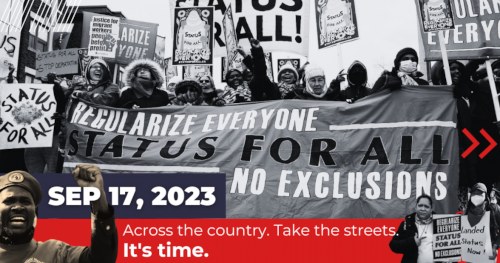
Regularize Everyone: It’s time.
Bills are skyrocketing, rent is beyond reach, forests are ablaze, and healthcare is being privatized. We are in the midst of an inequality crisis, with migrants who grow the food, care for the sick, build the homes, and keep us going bearing some of the heaviest burden. Lack of permanent resident status leaves them without … Keep reading »
-

Stop the Ford Government’s Privatization of Our Public Hospitals’ Core Services
Queen's Park South Lawn, Toronto, OntarioMake a major show of strength to set the tone for the reopening of the Ontario Legislature. We are not going away. We are unalterably opposed to the privatization of our public hospitals. We paid for them. We built them. They do not belong to the Ford government to run them into crisis, gut their … Keep reading »

